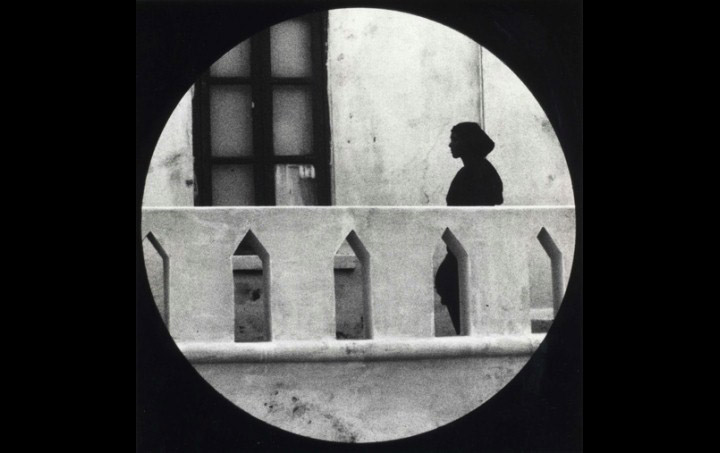
21 November 2013 20:30, KASKcinema, Gent. A KASK lecture in collaboration with Courtisane.
Black Audio Film Collective, Testament
1988, 16mm on video, color, English spoken, 80′
“I think necrophilia is at the heart of black filmmaking. I mean necrophilia not in a literal sense, but in a post-modern sense in which people are invoking figures, there is an act of feeding off the dead… It has to do with getting to the heart of something that is intangible, a memory of ourselves.”
– John Akomfrah
“If we loose the ruins, nothing will be left.” A quote from Zbigniew Herbert sets the tone for this post-colonial trauerspiel, composed as a journey through a “war zone of memories”, a wandering along the rivers of memory in search of the intangible realities of post-colonial trauma. It all begins with a crisis of unknowing, as the exiled Abena returns to Ghana to confront her past, only to find there is no more “home” to go to: the utopian dreams once longed for have been violently shattered, given over to loss and ruination. How to come to terms with a past that has been repressed, a place that has been dispossessed, a memory whose traces have been erased? Just like in his previous film, Handsworth Songs (at show on 20 November), John Akomfrah (then member of the Black Audio Film Collective) addresses the uncertainties of the colonial archive and their effects on the diasporic condition by creating a space of poetic reflection in which the irreconcilable gaps and fissures between history and myth, the imagined and the experienced – there where diasporic histories lie in wait – can be excavated. Responding to the challenge to propose a cinematic form in accordance with this sense of incertitude and absence, Akomfrah constructed a multilayered flow of fictional scenes and archival footage, tinted along the lines of the “colour temperature” that informs Tarkovsky’s Nostalghia, with filters corresponding to the colour symbolism in Ga society. For Akomfrah, whose parents were both political activists supporting Kwame Nkrumah’s pursuit of Pan-African Socialism, returning to Ghana was also a search for ”the emotional core that binds a person to a place;” and just like Abena’s perhaps, a quest to face the unknowing standing in the way of letting go. Only when the forgetting ends, mourning can begin.
in the presence of John Akomfrah. On 20 November he will also be presenting his film Handsworth Songs in Cinematek, Brussels. The visit of John Akomfrah has been made possible with the support of Brussels Arts Platform and VUB Doctoral School of Human Sciences.
In the context of the research project “Figures of Dissent (Cinema of Politics, Politics of Cinema)”
KASK / School of Arts